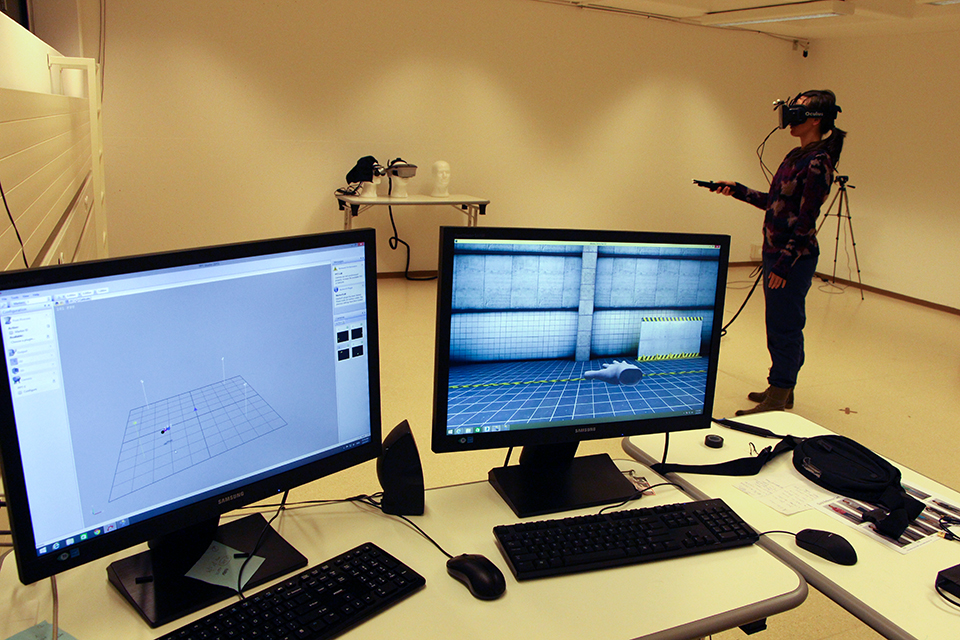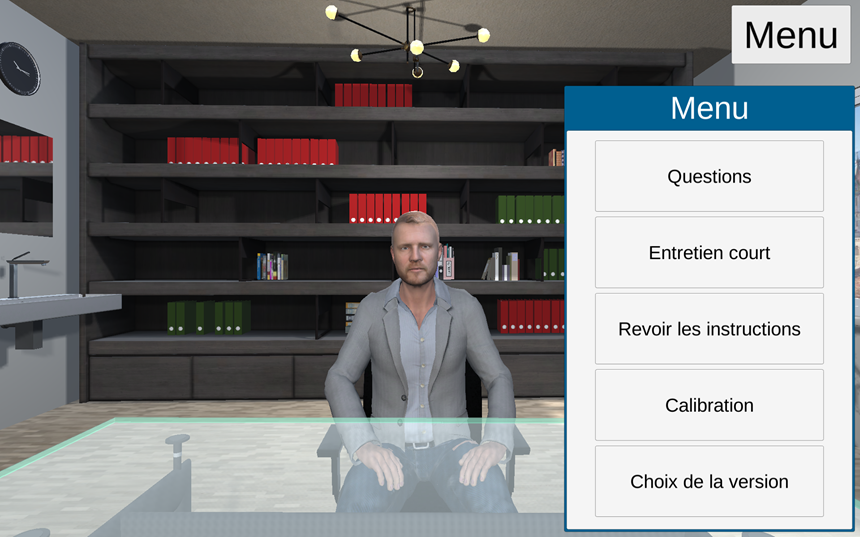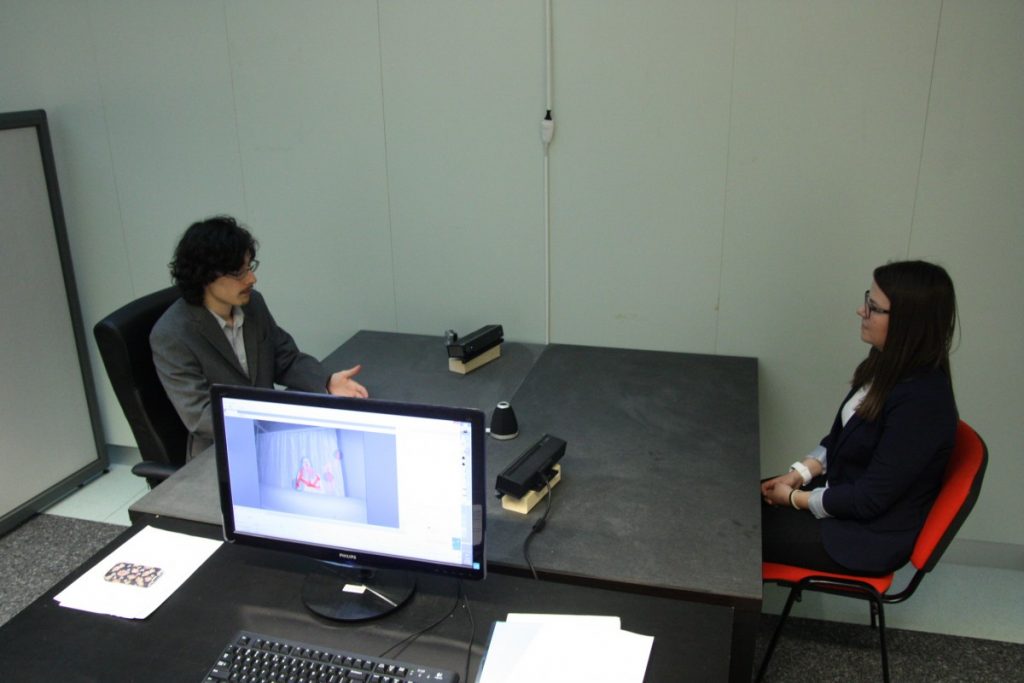Immersive Virtual Reality

The virtual reality laboratory at HEC Lausanne is unique in Switzerland and it is one of the few laboratories worldwide focusing on the study of interpersonal interactions in a work context (e.g., provide performance feedback to a virtual collaborator) and for training of interpersonal skills (e.g., public speaking).
We develop simulations that immerse participants in different virtual environments and interpersonal situations (e.g., being interviewed for a job, having to provide feedback to a collaborator, give a public presentation, consult a doctor, persuade a client) and use a walkable system, allowing the user to move around in the virtual world as they would in the real world and to meet and interact with virtual humans. The virtual humans talk to the user and interact with them.
Desktop Virtual Reality

We develop online applications that allow users to engage in social interactions unfolding on their computer screen. Users can, for instance, train to answer job interview questions that a virtual recruiter asks them or they can train to manage their stress while dealing with a difficult virtual client.
We use these applications for research, teaching, and training.
Pose Transfer
The Pose Transfer technology allows to synthesize videos of people by using a person-input video (showing the person) and a target-input video (showing the pose to be transferred). The video below shows examples of the input and the output videos obtained using Pose Transfer.
This technology enables us to explore the effect of similarity with the role model on interpersonal skills acquisition. We use the Pose Transfer technology to show to the learner a version of him/herself who masters a set of skills or nonverbal behaviors that the learner does not yet master (e.g., a video of the learner showing him/her in a more expressive way). Hence, the Pose Transfer technology enables us to create demonstration videos that feature the learner as the role model to be imitated.
Social Sensing

Social sensing describes the use of ubiquitous computing for the assessment of interpersonal behavior. Ubiquitous computing means the capturing and extracting social interaction behavior (i.e., verbal and nonverbal behavior) without the user needing to provide an input to the computer.
We use social sensing to study how people form first impressions and how nonverbal behavior in a social interaction is related to interaction outcomes (e.g., emergent leadership, hiring after a job interview).